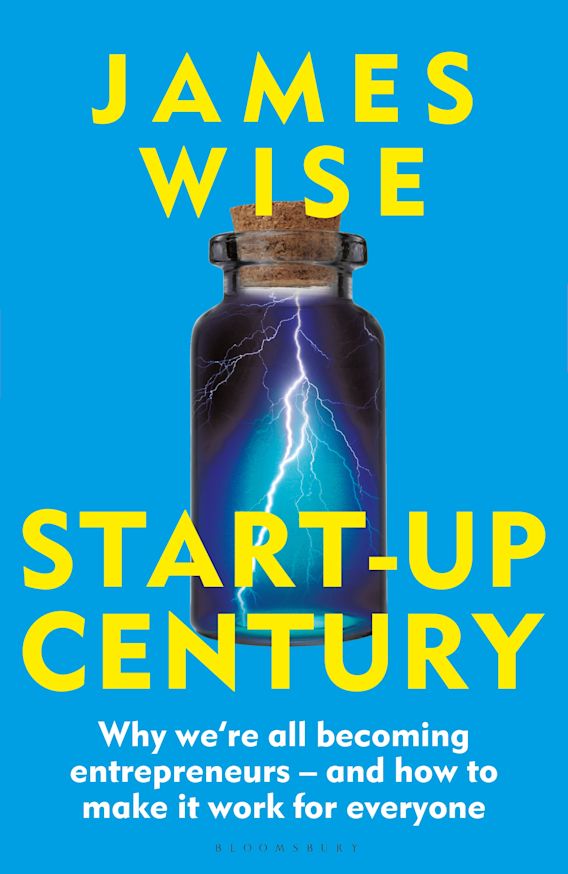And that’s why you should read it. I normally put this bit at the end, but there’s a danger that you may, with a personal lack of desire to radically change your career, feel it’s not a book for you. It is though. James Wise has built a story of choices – ones that the working world has played a large part in creating. It gives you some compelling reasons why talent isn’t flocking to your door, why people are exiting your business, or why that team member wants a part time role.
OK, I’m likely taking the book off-track a little. It’s primarily looking at the rise in start-ups and the types of people that are following such a route. And it’s richly and expertly done. James steers us through the story, soup to nuts, with a blend of facts, stats, stories and anecdotes. It’s part history lesson, as he digs into the ‘slump’ around innovation and start-ups, and part sociology as we look at the psyche and drivers of a typical young entrepreneur. Plus all the other parts in between.
What the book isn’t’ is a ‘how to’ guide. It’s the author’s take on what’s happening in the world, why and what it means for many of us. However, if you ARE thinking of jumping into the unknown and going solo, it’s worth reading just to test your resolve and understand what it means to wave goodbye to a monthly paycheck.
I was fascinated by the areas in which innovation and entrepreneurship is creeping into. Yes, technology is the heartland, and Wise talks regularly about how AI is going to impact this move. But he also looks at the medical sector, government services and energy. The latter seems to involve personal nuclear reactors. I, for one, am excited by that thought.
Not so much at the prospect of more Tik Tok / YouTube content creators (can’t bring myself to say Influeners). That said, the book shares the fundamentals of a career built around Social Media – it’s tough, relentless and you are up against everyone else. Within this sits my one niggle about the book. There are lots of examples of people who made the transition, but precious few about those that failed. This is not me being ghoulish, more the desire to see a little more balance, because plenty of innovators fail.
Alongside this sits the support that is needed to grow this burgeoning group. Start-ups require help – educational, financial, relational and legislative. It’s not easy, as highlighted by the stat that half of small businesses fail within five years. He uses China as an example of where start-ups are absolutely flourishing – a partial result of the ruling party’s thawing around private commerce, and the hunger for learning that is so prevalent.
I could go on, it’s a treasure trove, but I need to conclude on the ‘why you should read it’. What becomes evident in the book is that many people choose to go it alone because they find it a better option than paid employment. ‘Jobs’ have a much higher level of stress in terms of failure – the sudden ‘you’re being let go’ moment and the lack of control around your own destiny are major factors. As Wise points out, a salary comes from above, as a solopreneur it kinda falls on your shoulders to make the money each month. It’s freeing and motivating, and a little bit terrifying.
As the book highlights, we are also recording a significant drop in people seeing higher education as an option. Could that be, as Wise shares, that a Roofer earns more than a Graduate Employee? Or that a Bricklayer earns more than both their salaries put together?
We need to heed this – work is less appealing than ever. The world is now a place that provides the tools, infrastructure and marketplace for people to work, independently, without ever stepping foot into an office. Your talent is leaving you for… itself.
Start-up century ends with a short, punchy manifesto on the support needed to keep the wave of innovation and entrepreneurship in motion. It’s interesting, very pragmatic reading that contains one nugget of gold. ‘Make it a legal requirement to pay small companies on time’. Hear, hear!
Published by Bloomsbury
Chris Preston is a culture expert and one of the founding partners of The Culture Builders







